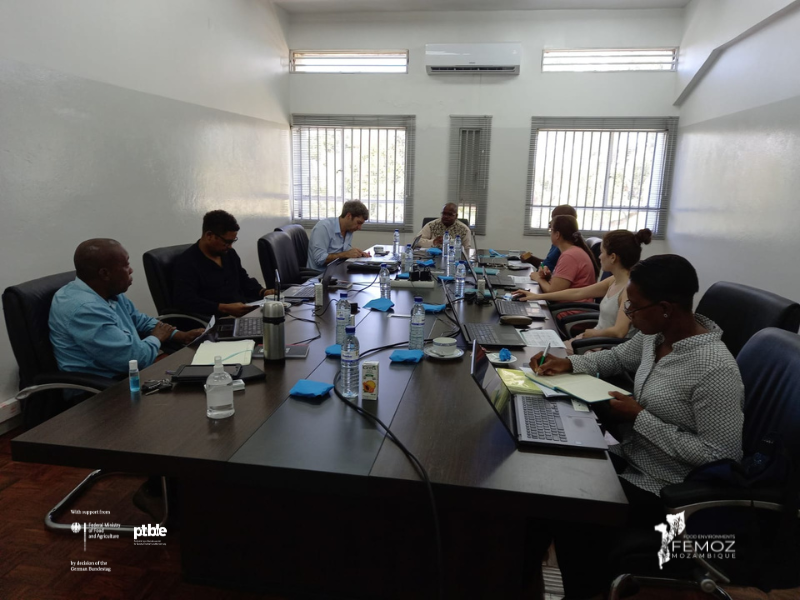TH-Köln
Technische Hochschule Köln
 Activities
Activities
The FEMOZ team met again, this time in Maputo, Mozambique. Research results, networking and further steps were discussed
Project members TH Köln, Frankenfoerder Forschungsgesellschaft (FFG ) and the University of Eduardo Mondlane (UEM) met in Maputo, Mozambique, this March of 2023. Furthermore, with the objective of continuing the development of the FEMOZ project, workshops and living labs took place with additional stakeholders and project partners such as SETSAN, MISAU and OMR, intending to discuss the newest developments and partial results of FEMOZ. Cooperation with stakeholders in project discussions enables not only sharing of knowledge but also expanding the FEMOZ network and its reach, with broader collaboration for evaluating criteria, results, and the development of scientific literature, among others.
Furthermore, alongside the Department of Forestry of the UEM, a visit to the FEMOZ demonstration field in the district of Moamba, Mozambique, allowed the first recordings related to Neglected and Underutilised Species (NUS) typical of this area. This task will be undertaken for the three study regions of the project with the objective of increasing knowledge and the importance of NUS to alleviate food insecurity in the country. This task will be expanded with additional academic and practical material offered as part of the Linked Open Online Courses (LOOCs).
The FEMOZ team will meet again in September in Mozambique to develop the DAAD Summer School on “Food security under disaster risk conditions: concepts, tools, practice”, in addition to taking part in the UEM International Symposium.